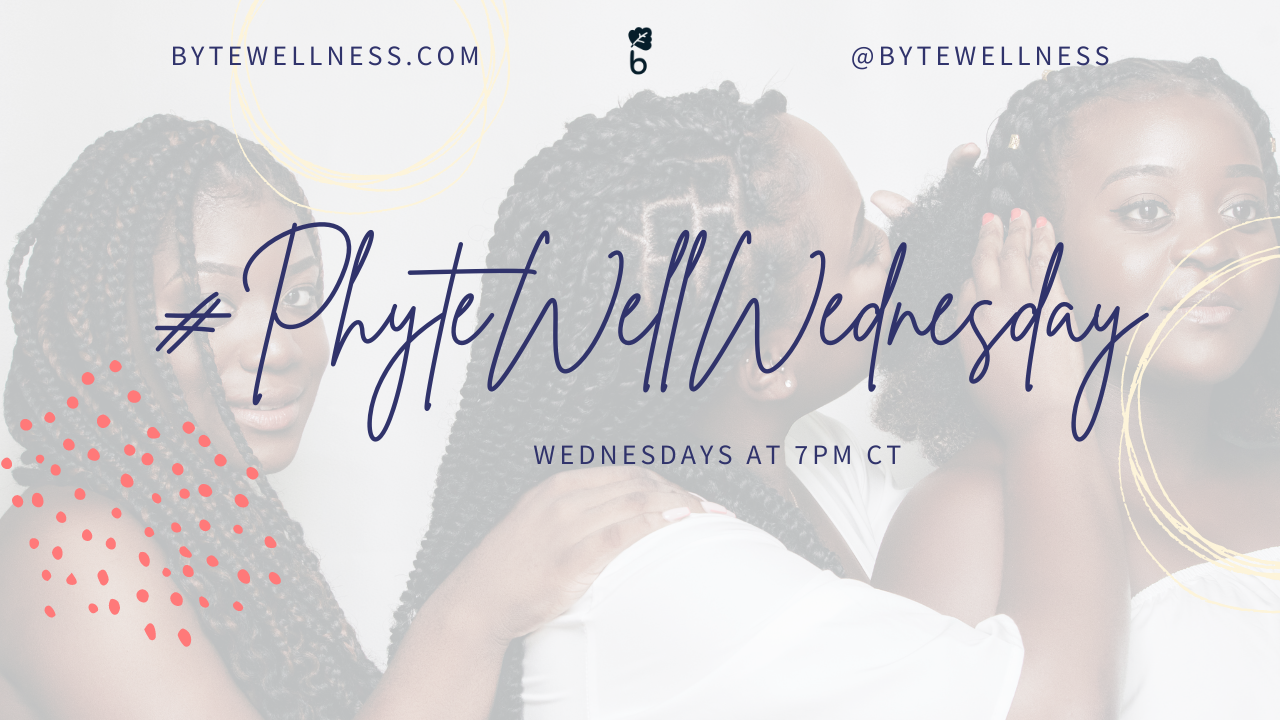You are Your Best Thing
Hi Byte Wellness Fam,
How are you feeling? I’m feeling worthy…worthy of all the privilege and power in my body and mind. Check the discussion question, and keep reading to see why.
Discussion Question
Can you feel stress in your body? If so, where/how does it show up?
We dug into this during our last #PhyteWellWednesday Workshop. Watch the recording below to follow along with our convo and dance along with our virtual dance party!
Make sure you don’t miss next week’s workshop- send TEXT to 1(224)302-6224 to get an invite.
Lately, I’ve been thinking a lot about what a beautifully complex system our body is. I mean…even that statement needs unpacking.
What we think of as our “body” isn’t just our physical body. Our brain is part of our body.
And our brain creates thoughts and feelings that we don’t usually consider to be a part of our body.
We might be more likely to call our thoughts and feelings part of our spirits or our psyche.
Still, thoughts and feelings trigger things in our physical bodies.
The opposite is true, too.
What happens in our physical bodies shows up in our thoughts and feelings.
Whoa.
Let’s break that down. Imagine that we have a big project coming up at work or we have a family member waiting for scary test results. We might feel anxious.
That anxiety/stress might be accompanied by a parade of thoughts (What am I going to do if things don’t go well? Am I prepared to handle the outcome if things do go well?).
It’s easy to see how feelings and thoughts go hand-in-hand like lifelong play-cousins.
And, if we really pay attention, we’ll see that feelings (emotions) and bodily sensations have deep connections, too.
That stress we’re feeling waiting for test results might make our shoulders feel tight.
That stress leading up to the big work project might show up as constipation or the opposite.
Understanding how stress changes our bodies is an essential step in taking control of our health and wellness.
Last week, we laid the groundwork for understanding the dual roles of balance and personal agency in our wellness.
This week, we moved on to establishing a baseline for our wellness.
In exercising our personal agency, we need to be the first ones to sound the alarm that something isn’t right in our bodies or minds.
How can we know that something isn’t right if we don’t know what right feels like?
Let’s be clear, we’d need to know our wellness baseline if we were operating in a closed system where we were the only ones responsible for influencing our health and well-being. But, knowing ourselves with conviction is even more important considering that we sometimes need to interface with a healthcare system that doesn’t always hear, see and believe us. Too often, we have our symptoms dismissed by healthcare providers.
Our pain is simply “hysterics”, not a sign of a postpartum emergency; Our nausea is just nerves, not an atypical sign of a heart attack. Our anger at being ignored is an “over-reaction”, not a sign of how desperately we need help.
We must know ourselves well enough to tell whomever needs to know (family, friends and healthcare providers) what’s happening in our bodies and how that represents a change from our baseline.
And we need to be so convicted in what’s happening, that we are able to seek out one provider after the next until we find the one who takes our symptoms seriously and helps us relieve our suffering
Knowing what’s right and what’s off in our bodies with that level of conviction requires radical presence- the type of attention to detail that we reserve for our most beloved.
Why not build a practice of turning that attention onto ourselves for once? After all, as Toni Morrison wrote in Beloved: “You are your best thing”.
Happy Healthy Living,
Dr. Wuse

